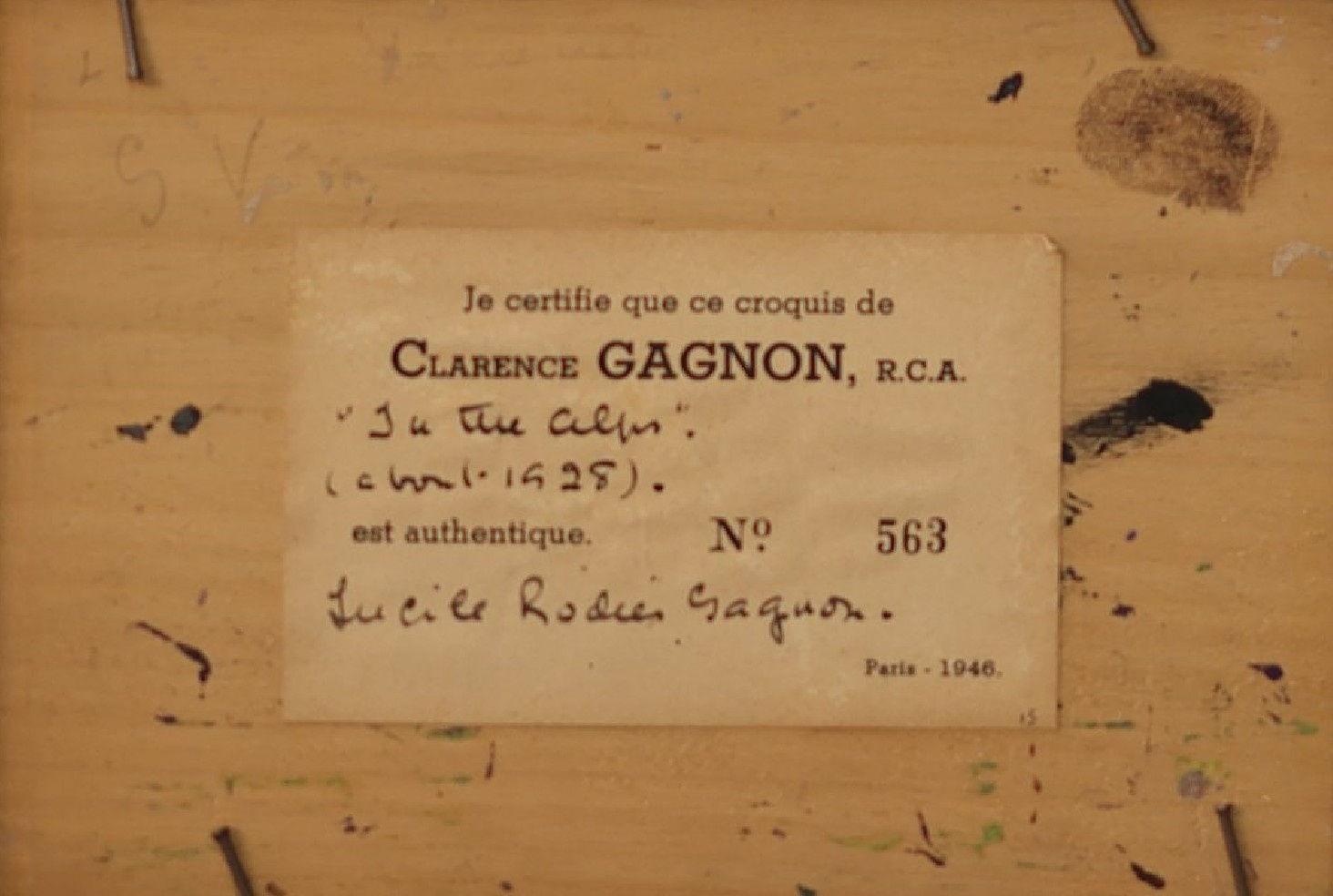“ In Gagnon’s art we can slip back into a dream, delighting in the colours and tranquility of times past- just as Gagnon did in the early decades of the twentieth century.”
Anne Newlands, 2005
Clarence Alphonse Gagnon (November 8, 1881 - January 5, 1942), born in Montreal, Quebec, was a renowned Canadian artist known for his exceptional contribution to the Canadian Impressionist movement. With a keen eye for capturing the beauty of the Canadian landscape, Gagnon's distinctive style and imaginative use of colour have cemented his place in the canon of Canadian art history.
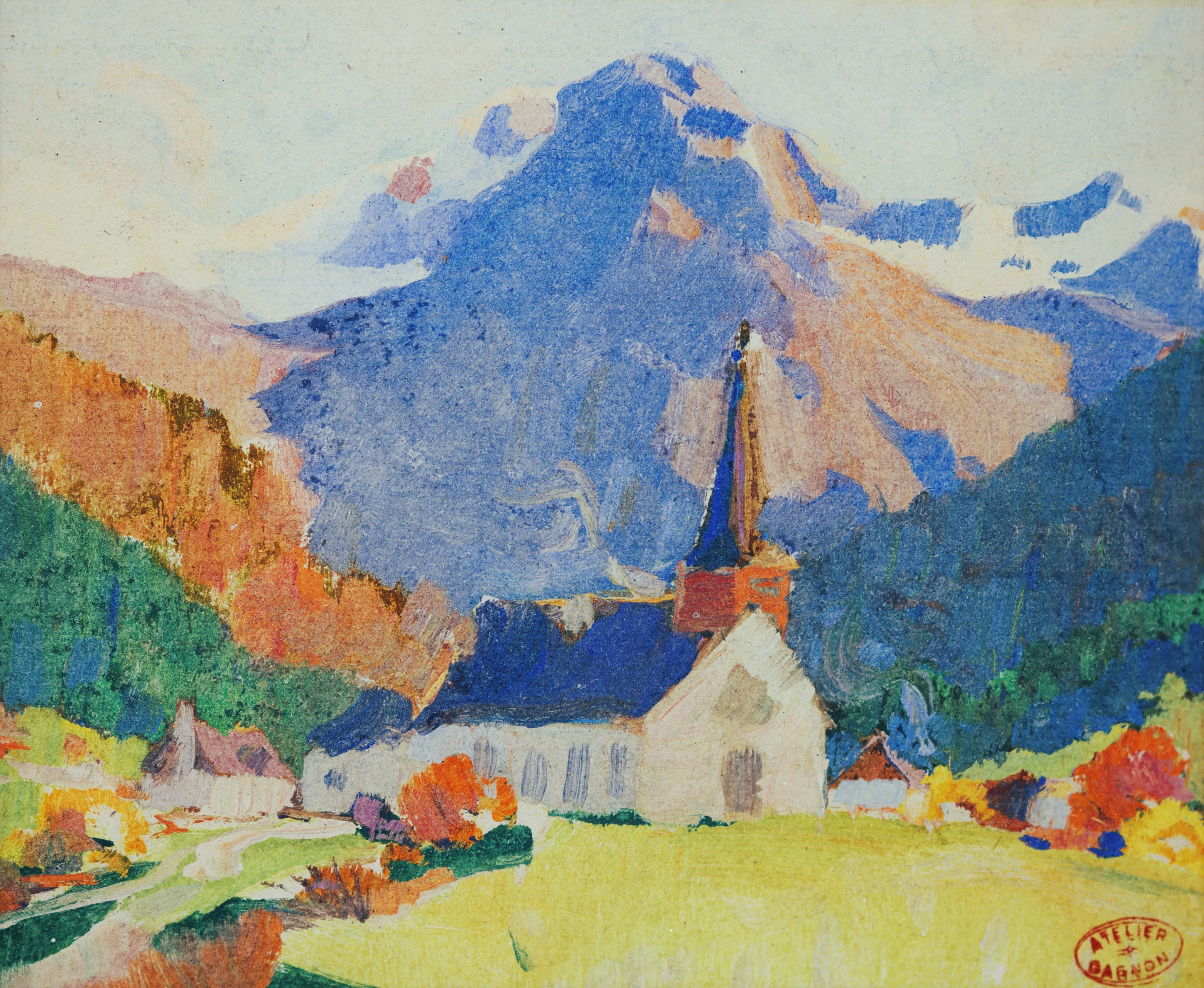
Clarence Gagnon; Dans Les Alpes
Gagnon's artistic life began in Montreal, where he displayed a natural affinity for drawing from a young age. Recognizing his talent, his parents encouraged him to pursue his passion, and he embarked on formal art training at the age of 14. Gagnon studied at the Art Association of Montreal under the tutelage of the renowned artists William Brymner and Edmond Dyonnet, honing his skills in oil painting and watercolour techniques.

Clarence Gagnon; Early Morning, Lake of Geneva, Switzerland, 1911
In 1903, Gagnon received a scholarship from the Canadian government, enabling him to continue his studies in Paris, France. This period proved to be transformative in his artistic development, as he immersed himself in the vibrant art scene of the Belle Époque era. Inspired by the works of the French Impressionists, Gagnon embraced their use of light and colour, incorporating these elements into his own unique style. He studied at the Académie Julian under Jean-Paul Laurens and adopted Morrice’s method of painting quickly on the spot.
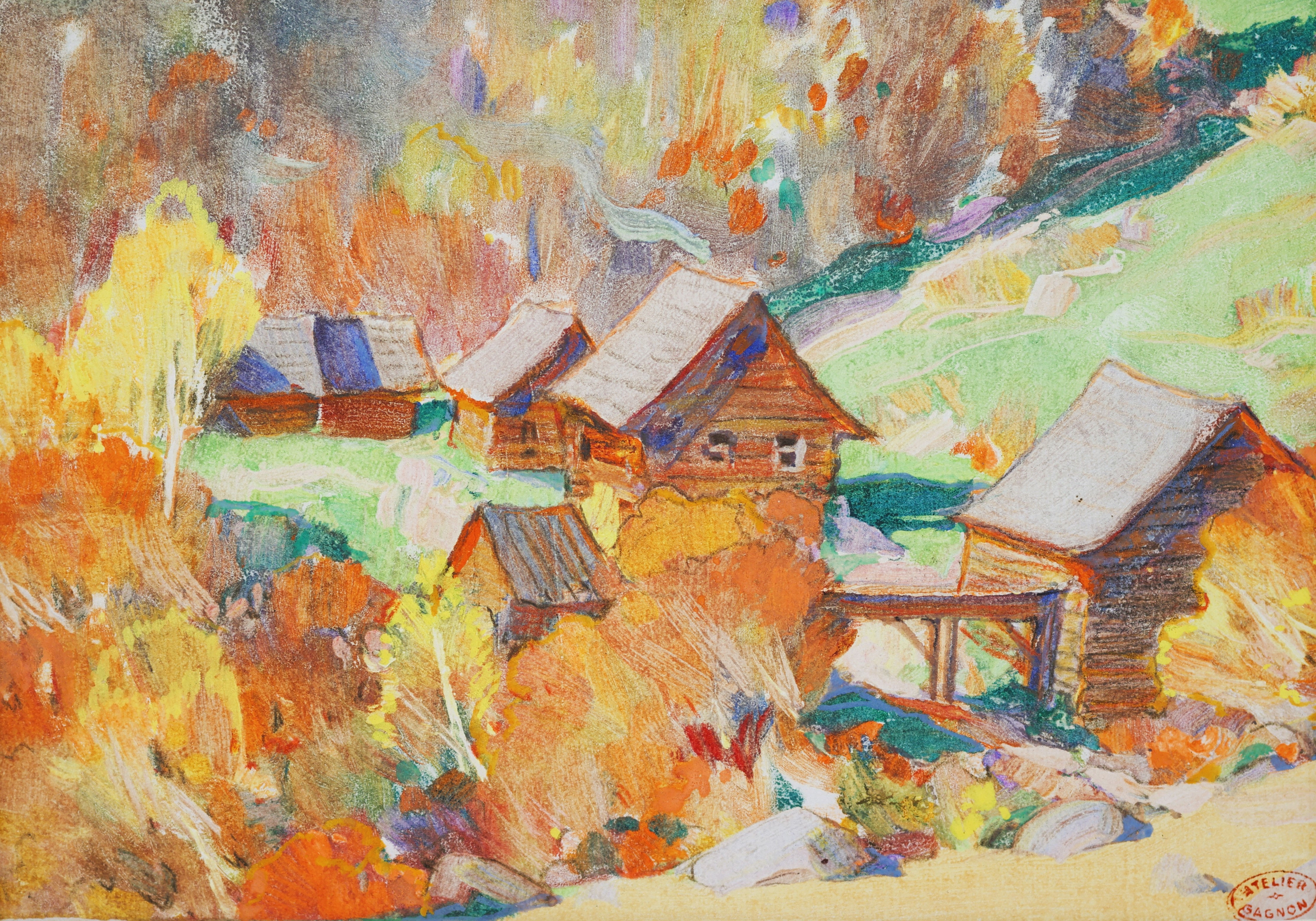 Clarence Gagnon; Moulin de la Martine, Baie St. Paul
Clarence Gagnon; Moulin de la Martine, Baie St. Paul
Gagnon's true passion lay in capturing the breathtaking landscapes of Canada, particularly the rural villages of Quebec and the pristine wilderness of the Laurentian Mountains. His works resonated with his fellow Canadians who appreciated his ability to depict the essence of the country's natural beauty. Gagnon's paintings often showcased snow-covered landscapes, frozen rivers, and peaceful country scenes, evoking a sense of tranquillity and nostalgia. He settled in the Baie-Saint-Paul region of Charlevoix upon his return to Canada in 1908, where he preferred to sketch, and his affection for French-Canadian life is evident in his anecdotal series of depictions of habitant life.
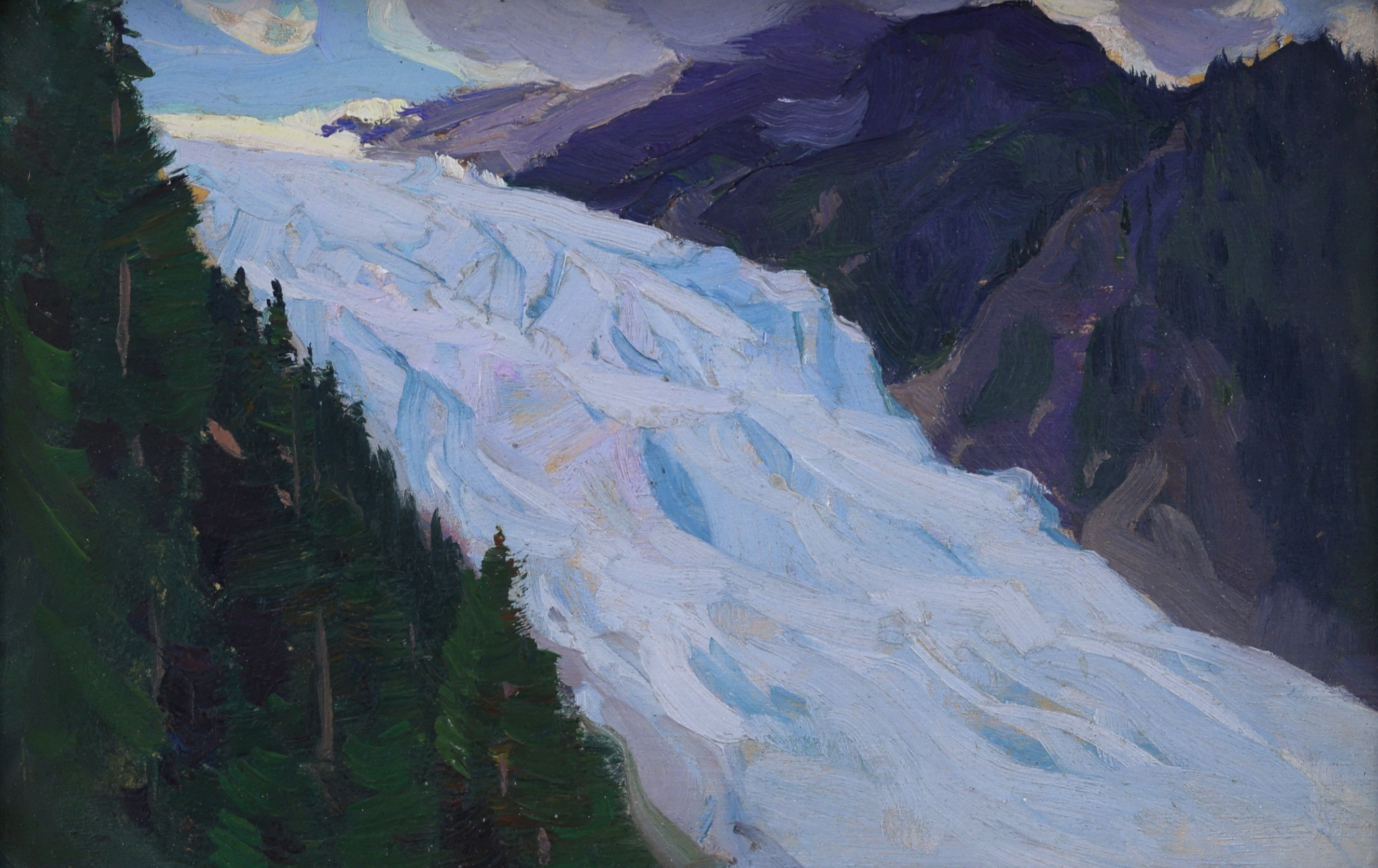 Clarence Gagnon; Glacier
Clarence Gagnon; Glacier
Clarence Gagnon's talent and dedication to his craft did not go unnoticed. His works gained international acclaim and were exhibited extensively across Canada, Europe, and the United States. Gagnon's masterpieces fetched high prices at auctions, elevating the status of Canadian art on the global stage. Moreover, Gagnon played a crucial role in promoting Canadian art through teaching and mentorship. He shared his knowledge and passion as a professor at the Art Association of Montreal, influencing the next generation of Canadian artists.
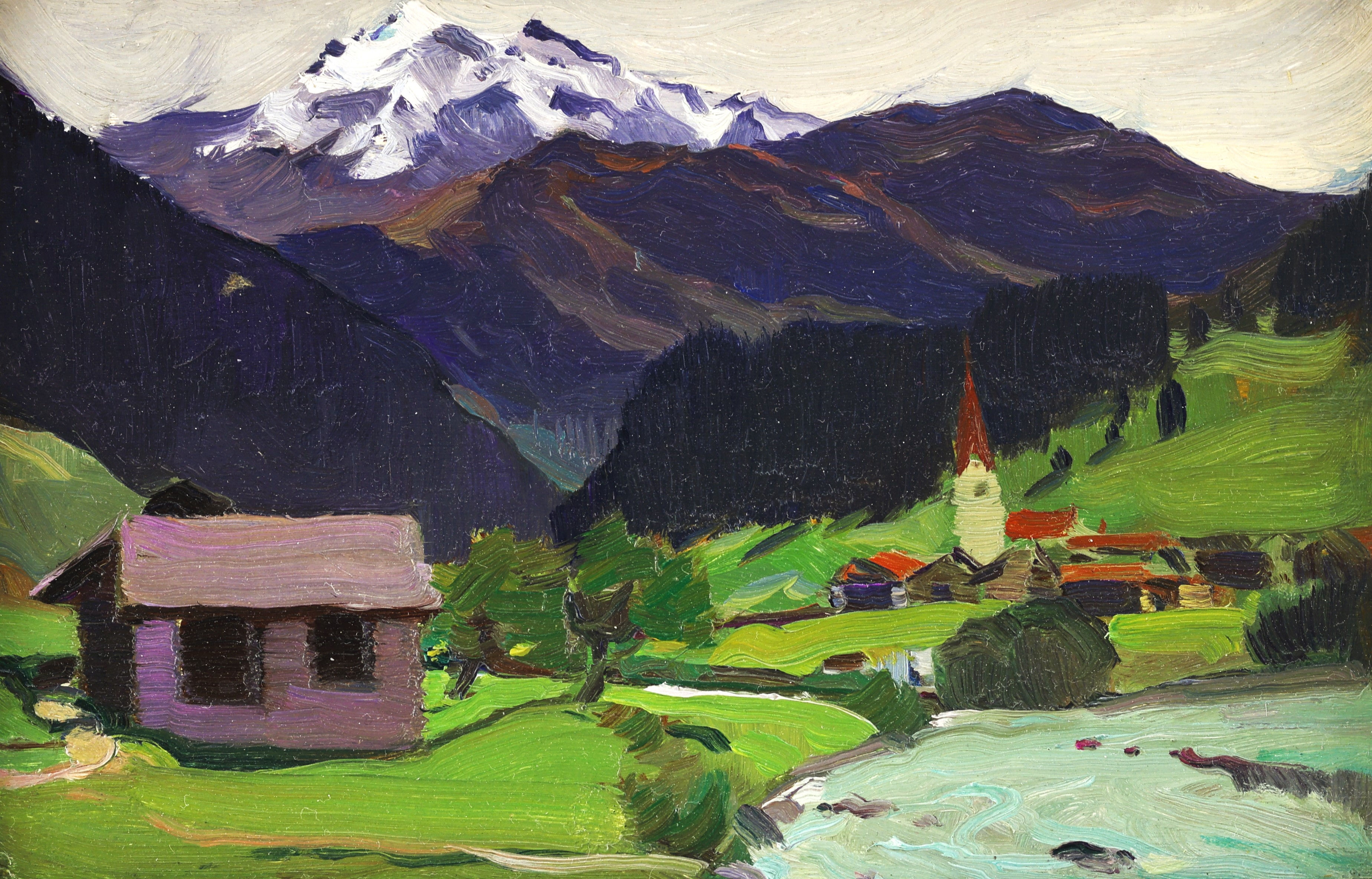 Clarence Gagnon; The Alps
Clarence Gagnon; The Alps
Gagnon was a full member of the Royal Canadian Academy of Arts (1922) and received the Trevor Prize of the Salmagundi Club of New York in 1923. His widow Lucile did an admirable job of authenticating his work with inventory numbers. One unique aspect of Gagnon’s work is that to thwart forgeries he sometimes put his thumbprint in paint on the back.
